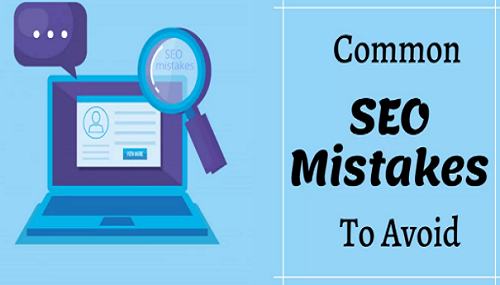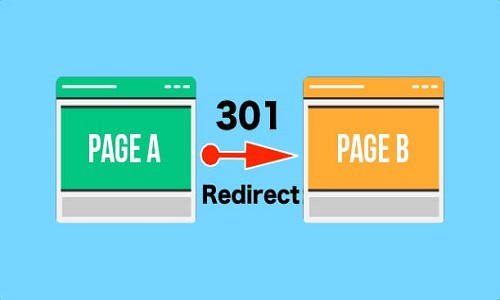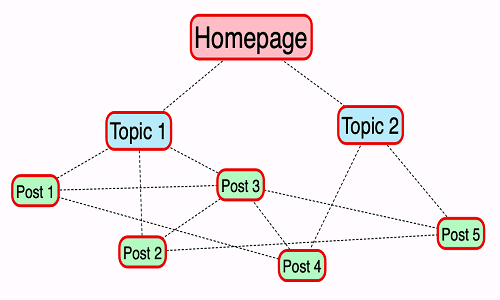9 SEO Mistakes to Avoid in 2021
The demands in the realm of SEO are growing day by day, but so are the opportunities in search engine. The market size of SEO is actually predicted to reach approximately $1.6 billion by 2027. Most webmasters struggle to get feasible results from many of their search engine optimisation efforts.
It is often because some fall prey to the smallest yet most common SEO mistakes. But there is no reason that this needs to be the case! In this article, we will discuss the top 9 SEO pitfalls you must be on the lookout for to improve your rankings in 2021 and beyond.

1. A Weak Introduction
This is one of the most common pitfalls in SEO. The main objective of an introduction is to get your target audience to read the rest of your content. Your introduction paragraph must hook the audience and keep them interested in your article.
Failure to do this will result in your bounce rate increasing. Remember, if people are not hooked on your page from the introduction, your conversion rate will suffer.
With most people spending so much time on social media nowadays, their attention span for reading articles has reduced significantly. Try to avoid going in circles in your introduction and get straight to the point:
- State the facts from the get-go: For instance, one might search for ‘best food steamer’, you can start by saying ‘This year, alone 30 food steamers have entered the market…’ – This lets your target audience know that you’ve done your research and they’ve already learnt something new – this will keep them intrigued.
- Pitch your article to the readers: Let them know what they are about to read and learn from your article.
2. Not Taking Search Intent Seriously
Search intent is one of the most least understood ranking factors. Search engines tend to favour websites whose content is satisfying the search intent for a particular query.
As a webmaster, you need to figure out what your audience wants to get from their query. Do they want to buy something? Or, are they merely looking to learn something?
For instance, if you type “content marketing” in your search bar, it probably means you want to know more about it. Perhaps, you don’t know what the term means. This means the user has informational intent.
But, if you search for ‘content marketing services’, it means you already know what it is and would like to hire a company or consultant that specialises in this field. This is known as commercial intent. So, be sure to answer your user’s queries accordingly.
3. Holding-on to Old SEO Practises
As you may already know, Google is constantly updating its algorithm. As a result, SEO is advancing. The best SEO strategies that worked very well for you ten years ago might not be as effective anymore.
So, to stay on top of the SERPs, you must keep yourself updated and, most importantly, incorporate modern SEO techniques. This helps you to keep an eye out for any shifts in the industry.
4. Not Using 301 Redirects
Whenever content gets moved from one URL to another, Google will treat it as a brand-new page with no ranking history at all. That’s unless the original page records a 301 or 302 redirect. With a 301, the link juice is permanently transferred to the redirected page.
On the other hand, a 302 redirect is temporary, and it indicated that the content would eventually return to its original location.

Some webmasters might put off 301s because when a site has hundreds or thousands of pages, the task can be very time-consuming. You must constantly check if you need to redirect any content because if you don’t, search engines will treat the pages as ‘vanishing pages’, thus penalise your site.
As such, you will forfeit your authority and all the backlinks that were previously set for the old URL. This is definitely something you wouldn’t want to happen.
5. Skipping Schema
Some webmasters forget to add the schema to mark up their content. Schema tells search engines what a website is about. Creating fresh content is excellent, but without the schema markup, the search engines might struggle to understand the context of your article.
This might result in you ranking low in typical searches and even be less relevant in certain queries done through voice search.
6. Overlooking Traffic from Mobile
If mobile search isn’t part of your day-to-day SEO strategy, then you might just be leaving some money on the table. In the present day, over 50% of traffic comes from mobile devices. In fact, since June 2020, 2 013.55% of the online shopping period was done on mobile devices.
To get more traffic from mobile devices, ensure that website is responsive and loads in under three seconds. Don’t ignore optimising for mobile if you want to increase your organic traffic.
7. Inconsistent Linking
Just like keywords, it might be very tempting for you to fill your content with internal links to your top-ranking pages. However, if your links are not consistent, it will feel unnatural. Users might also not appreciate link stuffing.
Also, search engines tend to lower the rankings of linked stuffed pages by recording the inconsistent linking with your content as a fraudulent practice. In most cases, four to six strategic in-links to best-performing pages is a lot. Again, ensure you link to an article related to the content in which the link is embedded.

8. Difficult Navigation
Smooth and sleek navigation is very important and not only to entice and satisfy your users but also for great search engine results. Confusing and clunky navigation will only leave your target audience going elsewhere for their needs.
Ideally, a user must be able to complete their hunt for information in two to three clicks from the homepage. If modifying your navigation this way sounds hard, at least try to make sure that the important pages are closer to your homepage.
Doing this will require you to know what your target audience finds most essential. Optimising the site’s navigation improved everyone’s experience, yours included.
9. Having Too Many Blog Categories/Tags
When you are creating a tag or a category, you’re merely creating a new page altogether that can also be indexed by Google bots. However, if these tags or categories don’t have enough content on each page, you might be signalling ‘thin content’ to Google.
One of the recommended ways to avoid this is by removing tags and categories that have orphaned content and then re-categorise that content within a robust and much more relevant category.
Overview: Common SEO Mistakes to Avoid this Year
If your objective is for your website to stand out against the massive ocean of other websites, you must know the ins and outs of SEO, both traditional and modern.
And, if you can try to avoid these common mistakes, you might just win on turning Google algorithms from enemies to friends. Do what’s necessary to get those clicks and increase in conversions. Good luck!
Other SEO posts to read:
- The Uses of Google Trends in SEO
- Importance of Sitemap for SEO
- How to Use Reddit to Improve Your SEO Performance
- High Ranking Articles: What Sets Them Apart
- How Do I Write a Meta Description for SEO?


